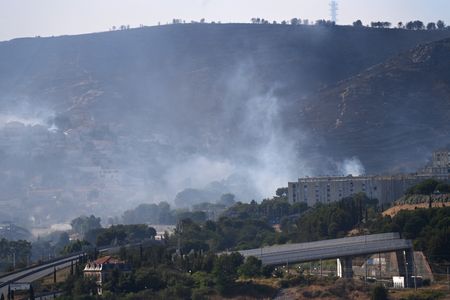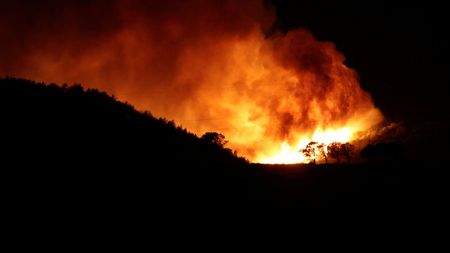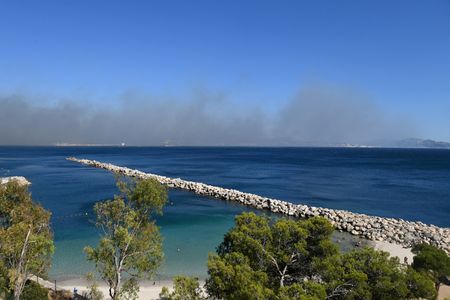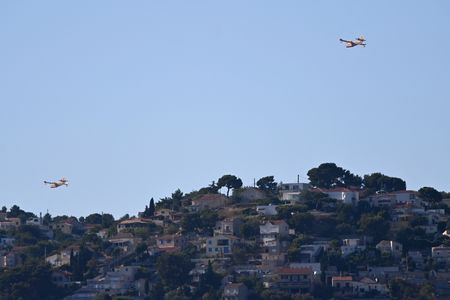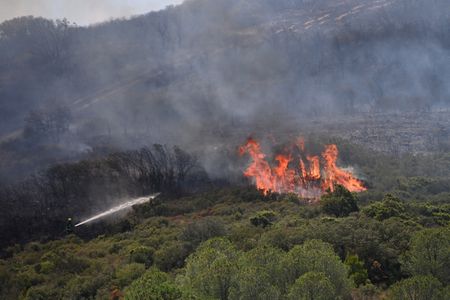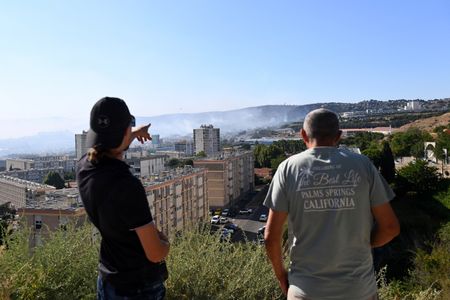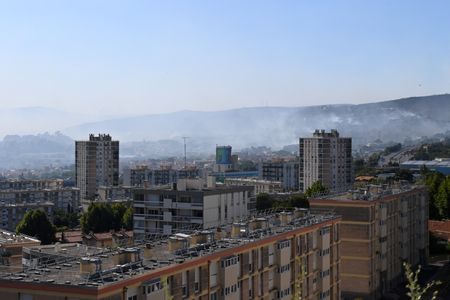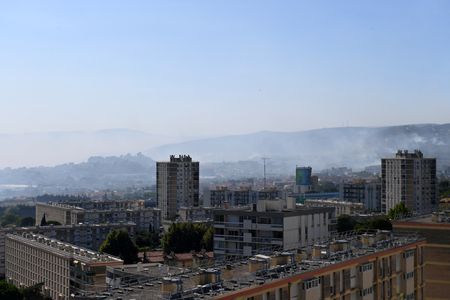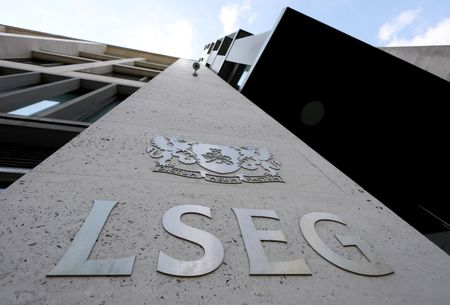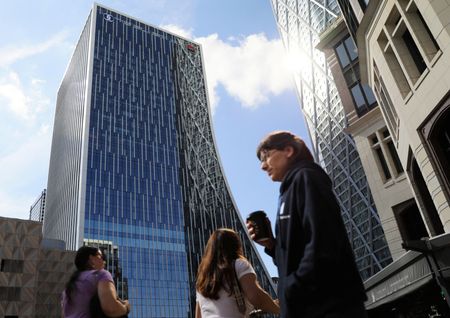By Tassilo Hummel
MARSEILLE, France (Reuters) -Hundreds of firefighters battled a fast-moving wildfire that reached the outskirts of the southern French city of Marseille on Tuesday, forcing people to stay indoors and the nearby airport to close.
Aided by firefighting helicopters and aircraft, the firefighters had the blaze under control by evening, officials said, but a forecast of more strong winds meant it might yet advance further towards France’s second most populous city.
The fire, fanned by winds of up to 70 kph (43 mph), could be smelt in the centre of Marseille as thick clouds of smoke hovered over the city on the Mediterranean coast.
“It’s very striking – apocalyptic even,” said Monique Baillard, a resident of Les Pennes-Mirabeau, the town north of Marseille where officials said the fire started on a highway.
The fire has burnt through 700 hectares (1,730 acres) and was considered to be under control even though it is still burning, regional prefect Georges-Francois Leclerc said.
About 20 buildings have been at least partly hit by the fire but no fatalities have been reported and hundreds of homes have been saved by firefighters, he said. Over 700 firefighters were battling the blaze, aided by firefighting helicopters and aircraft.
Wildfires, which have become more destructive in Mediterranean countries in recent years and attributed to climate change, were also raging in northeastern Spain, where large parts of the country were on high alert for fires.
There were also fires last week on the Greek island of Crete and in Athens, as much of Europe sweltered in an early summer heatwave.
As the fire was spreading, residents of Marseille received official alerts on their phones telling them to stay at home and put damp cloths on any openings.
“As we speak, it’s a battle,” Payan said, likening tackling the wildfire to “guerrilla warfare”.
“We’re waiting to see what happens overnight, because that’s critical too. Everything is strategic: wind speed, humidity, nightfall — every factor matters. Once again, it’s extremely complex, and the work is incredibly difficult.”
RESIDENTS CONFINED
Two residents of the 16th borough, in the north of Marseille, near where the fire started, described how scared they had been.
“It was dangerous, a lot of very dark smoke, we were really afraid. Police and firefighters did a great job,” said one resident, who did not give his name and said things now looked under control in his neighbourhood.
Residents were told not to evacuate unless ordered so that roads could be left clear for rescue services.
“At this stage, populations must remain confined,” the Provence-Alpes-Côte d’Azur prefecture posted on X. “Close shutters, doors, keep your property clear for emergency services, and do not travel on the roads.”
Anne, a 51-year-old woman who works in Marseille and lives on the outskirts, said by phone: “The sky is grey with ash, and the smell of fire is very strong in the centre of Marseille.”
In the coastal neighbourhood of l’Estaque, restaurant owner Simon Epenmbia said he was huddling in the restaurant with his family and neighbours.
“We are relatively close to the sea, where we feel safer for now and there is less smoke,” he said. “I also saw other people who came here towards the beach and are sheltering in their cars.”
A spokesperson for Marseille airport, France’s fourth-busiest, said planes had not been taking off or landing since around midday and some flights had been diverted to Nice, Nimes and other regional airports. It was unclear when it would reopen.
Many train lines heading to and from Marseille were suspended. Some roads and highways were also shut.
A wildfire that started near Narbonne, in southwestern France, was also still active on Monday. Some 2,000 hectares have burnt there, the local prefecture said.
(Reporting by Marc Leras in Marseille and Dominique Vidalon, Gabriel Stargardter, Sudip Kar-Gupta, John Irish, Richard Lough, Makini Brice, Tassilo Hummel, Geert de Clercq in Paris; Writing by Ingrid Melander; Editing by Richard Lough and Aidan Lewis)

